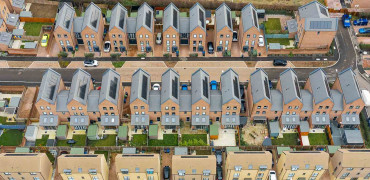More than 1 million households are expected to be lifted out of fuel poverty, as the government unveils plans for the most significant potential improvement to home energy standards in history.
The Energy Secretary has vowed to address past shortcomings and support tenants, with a commitment to consult by the end of the year on raising minimum energy efficiency standards for private and social rented homes by 2030.
As the UK faces increasing pressure to meet its net-zero targets and tackle fuel poverty, initiatives like the Warm Homes Grant are essential. Announced for broader implementation in 2025, the Warm Homes Grant is designed to improve energy efficiency in low-income households, reducing energy bills and carbon footprints.
The scheme focuses on privately owned or rented homes with lower Energy Performance Certificate (EPC) ratings, offering full funding for eligible households. Housing associations play a crucial role in ensuring tenants and stakeholders are informed and prepared for this new wave of energy support.
This will help tenants reduce energy costs and decarbonise UK housing stock.
Addressing the energy efficiency gap
The UK housing stock has long been criticised for its poor energy efficiency, particularly among low-income homes.
The Warm Homes Grant aims to address this gap by offering funding for energy performance improvements, including insulation, solar panels, and air-source heat pumps.
Homes with an EPC rating between D and G—those most in need of upgrades—will be the primary beneficiaries. These homes account for a significant portion of the UK's energy inefficiency, leading to higher energy costs and increased carbon emissions.
For housing associations, this initiative presents an excellent opportunity to improve the living standards of tenants, particularly those who may struggle to afford necessary energy-saving upgrades on their own.
The grant will not only reduce energy bills but also contribute to creating a healthier living environment by ensuring homes are warmer in winter and cooler in summer.
Key features of the warm homes grant
The Warm Homes Grant is aimed specifically at households in England with low incomes. Eligible homes must meet certain criteria: they must be privately owned (either owner-occupied or privately rented) and have an EPC rating of D to G.
The grant is particularly focused on homes that do not use mains gas as their primary heating source, as these homes are often the least energy-efficient.
Eligible households can receive upgrades such as insulation, solar panels, and air-source heat pumps. These measures will be tailored to each home's specific needs, ensuring the most effective upgrades for each property.
Local authorities will manage the scheme, oversee installations, and ensure that homes meet the eligibility criteria.
Eligibility criteria and process
To qualify for the Warm Homes Grant, households must meet certain income thresholds. The programme is open to households with a gross annual income of £36,000 or less before housing costs or £20,000 or less after housing costs like rent or mortgage and council tax.
Alternatively, households that receive means-tested benefits, such as Universal Credit or Pension Credit, are also eligible.
The application process is designed to be straightforward. Once the expression of interest window opens in October 2024, households or their landlords can apply. If the initial assessment indicates eligibility, further verification steps will follow, such as providing proof of income or benefits, along with an energy performance assessment if the home does not currently have an EPC rating.
The role of housing associations
For housing associations, the Warm Homes Grant represents an opportunity to actively support tenants in improving their living conditions.
While the grant is targeted at private homes, housing associations can play a vital role in raising awareness among tenants who may be eligible, particularly those in privately rented accommodations or shared ownership schemes.
Housing associations can also collaborate with local authorities to ensure that tenants meeting the eligibility criteria are informed about the grant and guided through the application process.
This will help tenants reduce their energy costs and contribute to the broader goal of decarbonising UK housing stock. Additionally, by fostering partnerships with local governments, housing associations can promote energy-efficient upgrades, ultimately improving the overall quality of housing in their communities.
Beyond financial savings, the grant's focus on sustainable energy solutions offers long-term benefits, such as reducing carbon emissions and creating healthier living environments. By prioritizing energy efficiency, housing associations can help create more resilient homes that are better equipped to meet future environmental challenges.
Joe Bradbury is digital editor of Housing Association magazine




